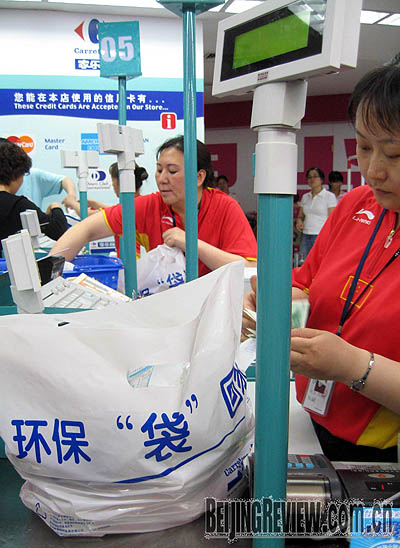|

Safety First
The State Council passed a draft regulation on post-quake restoration and reconstruction at an executive meeting in Beijing on June 4.
The regulation put forward special requirements on earthquake-resistance levels of infrastructure reconstruction in the quake-hit regions, including schools and hospitals.
According to the regulation, related departments should also properly put in place temporary houses and their supporting facilities and distribution of funds and materials.
Local governments are required to organize personnel to conduct safety appraisals of all school buildings as soon as possible to ensure the safety of students as they return to school, according to the statement.
Back to Normal
China will suspend refunding export taxes levied on some types of vegetable oil from June 13, the Ministry of Finance said in a statement on June 3.
This move, already endorsed by the State Council, is part of an effort to hold back vegetable oil exports, sustain domestic supplies and stabilize prices.
The Food and Agriculture Organization of the United Nations had previously predicted that world food and grain prices would remain high for the next 10 years, led by rising demand, speculation and climate factors. Experts are worried that this could stimulate China's vegetable oil exports, further jacking up domestic prices.
The tax refund rate on vegetable oil exports has been 13 percent since September 2006, covering 20 vegetable oil products, including soybean oil, peanut oil, olive oil, palm oil, cotton seed oil and corn oil.
Finally to an End
China's marathon iron-ore price talks with Australian miners for this year's contract could come to a conclusion this month, according to the head of the China Iron and Steel Association (CISA).
CISA Chairman Zhang Xiaogang told a news conference on June 2 that both sides are striving to wrap up the negotiations before June 30 and that the outcome should benefit both parties.
The talks, which started late last year to set prices for a fiscal year starting on April 1, have been deadlocked since Baosteel Group, on behalf of Chinese mills, agreed with Brazilian miner Cia Vale do Rio Doce on a 65-to-71-percent rise for 2008 term prices in February.
Australian miners Rio Tinto and BHP Billiton are holding out for more, arguing that they deserve a freight premium to reflect their proximity to Asia.
CISA had firmly resisted Australia's proposal, fearing that prices could jump over 80 percent with freight premium being factored in.
No Rules, No Markets
China Securities Regulatory Commission issued two pilot rules on wealth management business conducted by brokerage firms on May 31, in a bid to fine-tune the sector and stimulate its growth.
The rules, to take effect as of July 1, constrain brokerage firms to investing no more than 200 million yuan ($28.6 million) out of their own money in a single wealth management deal, and 15 percent of their net capital in all deals combined.
Also, they are required to deliver regular reports to the securities regulator about the planning of the scheme and its execution.
Bridging Tibet
The fourth civil airport in Tibet is expected to come into use in 2010, a spokesman with the Tibet Autonomous Regional Civil Aviation Administration told Xinhua News Agency on June 3. It will be the fourth civil airport in Tibet, after Lhasa, Qamdo and Nyingchi.
The airport is being built at an altitude of 4,227 meters at Gunsa Township of Gar County, Ngari Prefecture in the far west of the Tibet Autonomous Region, according to the spokesman.
It is designed to handle 120,000 passengers a year by 2020, with a terminal building of 3,500 square meters. | 